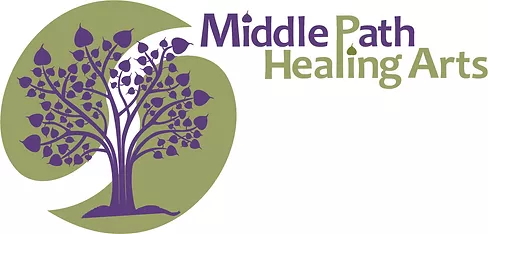Why Retreats Matter:
Simplicity, Space & Time for Practice
When I first attended a weekend retreat back in 1998, it was an unusual thing to do. Perhaps due to the ever faster pace of the world since then, interest in retreats has grown a lot. They are now more widely understood as helpful for slowing down and recovering some balance from the mad dash of daily living.
While there are many types of retreats, here you will learn more about those grounded in the foundations of mindfulness taught by the Buddha. This kind of retreat actually gives more than just a temporary escape. It offers a silent immersion in meditative practices. Silent retreats teach the heart of being present in ways that are potentially transformative and definitely highly portable when the retreat is over.
The Foundations of Mindfulness: Buddha’s Teaching
The Buddha’s teachings on mindfulness (sati) emphasize cultivating awareness in four domains: body (kaya), feeling tones (vedana), mind/heart (citta), and mental objects/mental phenomena (dhamma). Known as the Four Foundations of Mindfulness (Satipatthana) these practices offer a complete map for living mindfully:
- Mindfulness of the Body (Kayanupassana): Paying close attention to physical sensations, breath, posture and movements helps us ground ourselves clearly in the experiences of the present moment, moment-to-moment.
- Mindfulness of Feeling Tones (Vedanupassana): Tuning in to the arising, changing and fading away of pleasant, unpleasant, or neutral feeling tones and helps us experience sensations, emotions and thoughts more clearly.
- Mindfulness of the Mind/Heart (Cittanupassana): Observing the quality of our thoughts and emotions—whether calm or agitated, focused or distracted—we begin to see how they shape our experiences, and how ephemeral they are, too.
- Mindfulness of Mental Phenomena (Dhammanupassana): Bringing clear steady attention to noticing our perceptions and mental patterns helps us disentangle from them, allowing clarity and wisdom to emerge.
Each of these foundations invites us to deepen our understanding of the way things are, from the perspective of direct, immediate experiences. A silent mindfulness retreat offers a supportive space, guidance and instruction for diving deeply into these practices without the usual distractions. After the retreat, the practices can be expanded and extended into the rest of one’s life.
My Perspective: The Power of Stepping Away
When I began practicing meditation years ago, my teachers suggested daily practice and an annual retreat. I took the guidance on board, and have spent anywhere from one week to three plus months in silence ever since. From these experiences I have discovered that stepping away from daily routines for retreat sometimes creates a profound shifts in my practice and life. Other times, the retreat experiences seem more ordinary, but the impacts in life on returning are powerful. Either way, retreats offer a unique container where the mind naturally begins to settle as external distractions fade away. This settling allows for a more powerful exploration of mindfulness.
I have also learned that, for me, retreats aren’t about escaping daily life but about creating the conditions necessary for practicing deeper more continuous presence. Retreats have become part of my life, not an escape from it. In silence, guided practice, with the support of a community, I’ve experienced the gift of being fully present with whatever arises. This shift allows the teachings on mindfulness to become not just beautiful concepts, but living supports for awareness and skillfulness in my relationships and peacefulness in my heart.
What Retreats Offer
Time to Deepen Practice: Retreats offer uninterrupted time to explore mindfulness more fully. Whether focusing on the breath, body, or mind, the sustained attention cultivated during a retreat allows insights to emerge naturally.
A Break from Routine: Retreats intentionally remove us from our usual patterns. By stepping away from habitual environments, we gain fresh perspectives on our lives, seeing what serves us and what doesn’t.
Community Support: Practicing with others in a retreat setting fosters a sense of shared purpose. Even in silence, there is a profound connection that arises from journeying together toward greater awareness. I have found it amazing that this is even true with live-online retreats.
Integration and Healing: The combination of structured practice, guided meditations, and periods of silence helps integrate the teachings into our everyday experience. The focused environment can also bring healing to parts of ourselves that often go unnoticed or neglected.
Mindfulness as Lived Experience: Retreats transform mindfulness from a concept into a felt reality. It’s one thing to know about mindfulness intellectually, but it’s another to live it. On retreat, we practice mindfulness continuously—whether sitting in meditation, walking, or even eating—which reveals its richness and depth.
A Path to Presence
Retreats matter because they offer the space, time, and guidance needed to explore the fullness of mindfulness practice. Grounded in the Buddha’s foundational teachings and enriched by personal experience, these retreats invite us to return to our true nature—present, aware, and connected.
Whether you’re a seasoned practitioner or new to mindfulness, consider giving yourself the gift of retreat. It may just be the reset you need to reconnect with what matters most. There are lots of wonderful places to find retreats, and these days I also teach several each year. To learn more about attending a retreat with me go here.
Coming up in December 2024, I am looking forward to co-teaching a 5-day retreat with Kate Mitcheom at the seaside in Connecticut pictured above. Click here to find out more about that.

